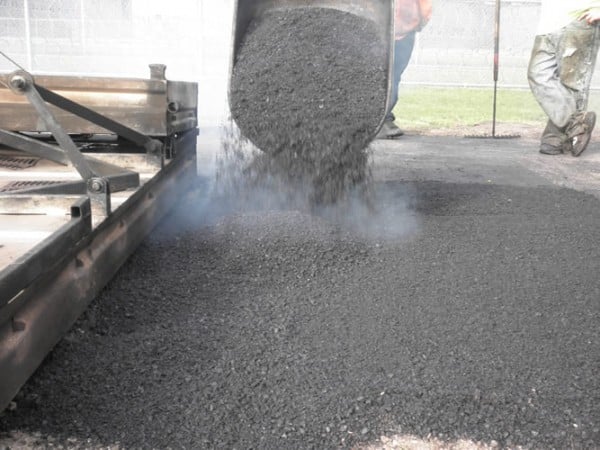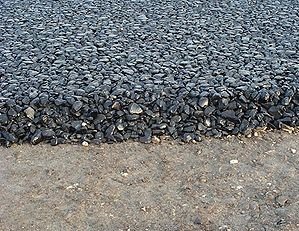Hot Mix Asphalt: Redefining Roadway Construction Criteria
Warm Mix Asphalt (HMA) is dramatically modifying the landscape of road building and construction practices, establishing new efficiency criteria and improving market requirements. Hot Mix Asphalt. This cutting-edge material's capability to enhance roadway longevity, stand up to heavy tons, and minimize maintenance costs has garnered focus from experts worldwide. Its impact on framework development and ecological sustainability has prompted a shift towards its widespread fostering in building and construction projects. The implications of HMA in redefining roadway building and construction standards are profound, offering a compelling instance for a better exam of its transformative capabilities in modern-day engineering practices.
Advantages of Warm Mix Asphalt
Warm Mix Asphalt (HMA) uses countless benefits that make it the preferred choice for paving roads. One of the crucial advantages of HMA is its capability to endure heavy web traffic tons and harsh climate conditions, ensuring resilient efficiency.
Additionally, the smooth surface area coating of HMA reduces rolling resistance, enhancing gas efficiency for cars and decreasing general transportation costs. The fast building and construction time linked with HMA projects better improves its cost-effectiveness by reducing labor and traffic disturbance expenditures - Hot Mix Asphalt. In addition, the recyclability of HMA materials makes it an eco sustainable alternative for roadway construction jobs.
Longevity and Longevity of HMA
With a proven track record of holding up against heavy traffic loads and severe climate conditions, Hot Mix Asphalt (HMA) stands out for its phenomenal durability and durability in roadway building projects. By offering a smooth and steady riding surface for chauffeurs, HMA decreases wear and tear on automobiles and improves overall roadway safety.

Ecological Benefits of HMA
Increasingly, road building and construction tasks are turning to Hot Mix Asphalt (HMA) for its substantial environmental advantages. HMA is a lasting paving material that uses a number of advantages in terms of ecological impact.
Furthermore, HMA pavements are understood for their ability to mitigate stormwater drainage. The smooth surface area of HMA roads enables rainwater to move efficiently right into the ground, lowering disintegration and more helpful hints decreasing the danger of flooding. This can have a favorable effect on the surrounding ecosystems by maintaining natural water circulation patterns and maintaining the quality of water bodies.
HMA in Roadway Construction Projects

Road construction projects take advantage of HMA's quick building time, permitting faster completion of roads and lessening website traffic disturbances. The material's simplicity of upkeep additionally adds to cost financial savings over the lifespan of the websites roadway. The smooth surface area provided by HMA decreases fuel consumption and car discharges, contributing to a much more lasting transportation infrastructure. On the whole, incorporating HMA right into roadway building and construction jobs leads to long-lasting, cost-efficient, and environment-friendly highways that meet the needs of modern-day transport systems.
Influence of HMA on Infrastructure
The considerable use of Hot Mix Asphalt (HMA) in roadway construction projects substantially influences the overall framework quality and longevity. HMA gives a smooth and sturdy driving surface that boosts road safety and security by decreasing and reducing accidents lorry damage. This, subsequently, results in decrease maintenance expenses for both cars and the road itself. Furthermore, HMA's adaptability allows it to adjust to varying weather, avoiding fractures and holes that can endanger the structural integrity of roadways.
HMA is a recyclable product, which indicates that old asphalt can be reused in brand-new road building, minimizing the demand for virgin materials and minimizing waste. In final thought, the effect of HMA on facilities is profound, advertising more secure roads, cost-effectiveness, and environmental responsibility in road building and construction projects.
Verdict
In conclusion, Hot Mix Asphalt (HMA) has confirmed to be a game-changer in road building criteria due to its unmatched effectiveness, sturdiness, and cost-effectiveness. With its ability to stand up to check this site out heavy web traffic lots and harsh weather conditions, HMA offers a resilient and reputable remedy for infrastructure tasks.
With a tested track document of standing up to hefty website traffic loads and severe weather condition conditions, Hot Mix Asphalt (HMA) stands out for its outstanding longevity and resilience in roadway construction projects.Utilizing Warm Mix Asphalt (HMA) in roadway building and construction projects uses many benefits in terms of longevity and sustainability.Roadway construction tasks profit from HMA's fast building and construction time, permitting for faster conclusion of roads and lessening website traffic interruptions.The comprehensive usage of Hot Mix Asphalt (HMA) in road building jobs dramatically affects the general infrastructure quality and durability. In conclusion, the influence of HMA on framework is extensive, promoting more secure roads, cost-effectiveness, and environmental duty in roadway construction jobs.